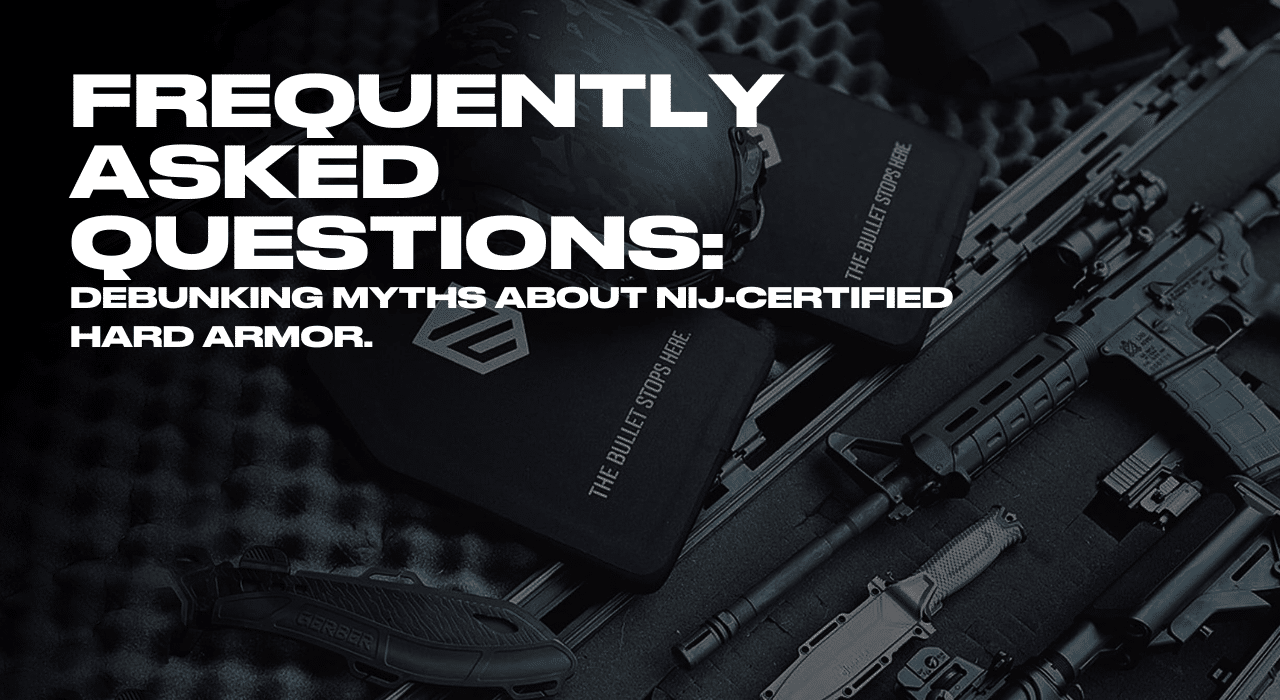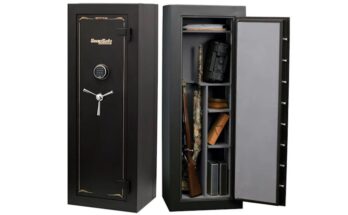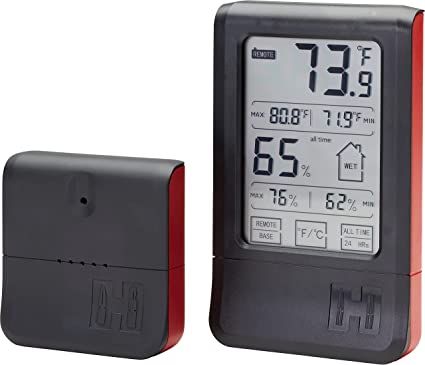Guns do not shoot faster when hot; temperature affects the rate minimally. A weapon’s firing rate primarily relies on its design and action type.
Understanding the impact of temperature on firearm performance is crucial for gun enthusiasts and professionals alike. The myth that guns shoot faster when hot stems from confusion around metal expansion and gunpowder ignition. While it is true that heat can cause metal to expand, and powder burns readily at higher temperatures, the mechanical function of a gun dictates its firing speed.
Various factors, from the firing mechanism to the ammunition used, play a more significant role in how quickly a gun can shoot. This introductory guide aims to explore the real influences on a gun’s firing rate, dispelling common myths and providing accurate information for our readers. Whether you’re a seasoned marksman or a curious newcomer, knowing the facts helps ensure both safety and accuracy when handling firearms.
Exploring The Science Behind Gun Mechanics
Curiosity often ignites when delving into the physics of everyday objects, especially firearms. “Exploring the Science Behind Gun Mechanics” opens up a fascinating world where precision and science converge. One burning question stands out: Do guns shoot faster when hot? Let’s unravel this intriguing intersection of heat and ballistics.
Basics Of Gun Operation
Understanding how guns work lays the groundwork for our exploration. At its core, a gun is a machine. It has parts that work together to send a bullet flying. When you pull the trigger:
- The hammer strikes the cartridge, igniting the primer.
- This ignition sets off the powder.
- The burning powder creates gas, which pushes the bullet through the barrel.
These steps take place in a fraction of a second. The sequence is precise. It must happen correctly for the gun to fire safely and accurately.
The Role Of Heat In Firearm Functionality
As guns fire, they generate heat. It’s a basic principle of physics—friction causes heat. But how does this affect the speed of bullets? Let’s break it down:
| Mechanical Component | Effect of Heat |
|---|---|
| Barrel | Expands slightly, potentially affecting bullet velocity |
| Powder | Burns faster, which might increase chamber pressure |
| Moving Parts | Can perform differently as the metal expands |
In theory, increased chamber pressure could hurl bullets faster. However, too much heat leads to wear and tear. This can change gun performance. Precision is key, and excess heat can disrupt it. Guns might shoot differently when hot, but safety and accuracy should always remain a priority.

Credit: www.americanprogress.org
Heat Impact On Bullet Velocity
Guns and their bullets work in interesting ways. Heat can affect how fast a bullet travels. When a gun gets really hot, it can change the speed of the bullet. Let’s explore how this happens with barrels and different conditions.
Examining Barrel Temperatures And Speed
Gun barrels heat up after every shot. As the barrel gets hotter, the metal expands. This tiny change can make bullets go faster. But it’s not so simple.
- More heat means faster particles. Inside the barrel, hot air can push the bullet quicker.
- Metal expansion reduces friction, allowing the bullet to sprint through the barrel with less resistance.
- Consistency is key. Consistent heat means the bullet speed stays similar shot to shot.
Case Studies: Gun Performance In Different Conditions
Real tests show how guns perform in hot and cold places. Here, you’ll find out about some experiments with guns in various conditions.
| Condition | Temperature | Impact on Velocity |
|---|---|---|
| Desert Heat | High | Slightly Faster |
| Arctic Cold | Low | Slightly Slower |
| Mild Climate | Moderate | Baseline Speed |
Studies like these tell us that temperature changes can affect bullet velocity. But remember, safety is most important when handling guns, regardless of the speed of the bullets!
The Myth Of Blazing Guns
The Myth of Blazing Guns captures the imagination with its sheer drama.
Origins Of The Faster-when-hot Theory
Tales of heated barrels firing faster rounds date back to early gunsmith lore.
- Old westerns showed gunslingers with smoking barrels.
- War stories often attributed rapid fire to a gun’s rising temperature.
- Myth perpetuated by dramatic cinematic effects.
Fact Vs. Fiction In Firearm Folklore
Real-world shooting defies these hot-gun tales.
| Aspect | Myth | Fact |
|---|---|---|
| Temperature | Guns shoot faster hot. | Speed barely changes. |
| Barrel Heat | Improves bullet velocity. | May harm the gun instead. |
| Rapid Fire | Barrel heat aids quick shots. | Risks overheating and damage. |
A study by ballistics experts proves the myth wrong. Guns have a threshold for heat and performance.
- Heat affects gunmetal, causing wear and tear.
- Excessive heat can warp barrels, risking safety.
- Barrel temperature’s impact on bullet speed is minimal.

Credit: acelinkarmor.com
Real-world Implications For Gun Users
The question of whether guns shoot faster when hot is more than just idle curiosity. This topic has real implications for gun owners and enthusiasts. Understanding how temperature affects a firearm’s performance is critical for both safety and maintenance. Let’s explore the crucial aspects gun users must be aware of.
Safety Concerns With Overheated Firearms
Overheated guns can lead to serious safety hazards. The reasons are many and varied. Here’s what gun users need to keep in mind:
- High temperatures may cause ammunition to ignite unintentionally.
- Barrel expansion could affect bullet trajectory and accuracy.
- Heat stress on metal parts can lead to premature wear or failure.
- Handling a hot firearm may result in burn injuries.
Meticulous attention to the firearm’s temperature ensures safer use and handling.
Maintenance Tips For Optimal Gun Use
Regular maintenance keeps firearms in top condition. Here are key tips for optimal gun performance:
- Clean the firearm after use to prevent residue buildup.
- Inspect and lubricate moving parts to reduce friction.
- Check the barrel for obstructions or damage regularly.
- Store guns in a cool, dry place to prevent rust and deterioration.
Following these steps helps prevent overheating and ensures reliability.
Expert Insights And Conclusions
Welcome to the ‘Expert Insights and Conclusions’ part of our in-depth exploration into how temperature affects firearm performance. Here, we’ll unlock the mysteries behind heated debates on whether guns really shoot faster when hot. Indulge in professional perspectives, conclusive data, and actionable advice to understand this phenomenon.
What Professionals Say About Gun Temperature
Experts in ballistics and firearm mechanics shed light on this intriguing subject. Temperature does influence gun performance. Metals in the firearm expand as they heat up. This expansion can slightly decrease resistance within the barrel. Professionals also highlight that propellant chemicals in bullets react faster at higher temperatures. These reactions can enhance the bullet velocity, suggesting a hotter gun might shoot faster. Yet, the increase is often marginal and might not affect practical shooting scenarios.
Summary Of Findings And Recommendations
- Minimal Effect: Most guns might exhibit small performance changes when hot, but these are usually negligible for casual shooters.
- Avoid Overheating: Continuously shooting in rapid succession raises the gun’s temperature, increasing wear and tear. Professionals recommend allowing guns to cool down between sessions.
- Consistent Maintenance: Clean and check guns regularly to maintain optimal performance, regardless of temperature changes.
- Safety First: Remember, safety is paramount. A hot barrel can cause burns or degrade faster, risking malfunctions.
In summary, while a hot gun may shoot marginally faster, the effect is often too slight for most shooters to notice. Aim for gun care and safe handling above all. Shoot responsibly, manage your firearm’s temperature, and you’ll hit the mark with confidence.

Credit: www.amazon.com
Frequently Asked Questions For Do Guns Shoot Faster When Hot?
Does Gun Temperature Affect Firing Speed?
Yes, gun temperature can impact firing speed. When guns are hot, the increased temperature can lead to a faster burn rate of the gunpowder. This can cause the bullet to be propelled more quickly, potentially leading to a marginal increase in firing speed.
Can A Hot Barrel Increase Bullet Velocity?
A hot barrel can slightly increase bullet velocity. As the barrel heats up, the air inside becomes less dense, reducing friction against the bullet. This can contribute to a higher velocity as the bullet travels through the barrel.
What Risks Are Involved With Overheating Guns?
Overheating guns can lead to several risks. The structural integrity of the barrel may be compromised, increasing the chance of a misfire or a barrel explosion. Continuous firing when overheated is not recommended as it can damage the firearm and pose safety hazards.
How Does Ambient Temperature Affect Gun Performance?
Ambient temperature can affect gun performance. In colder environments, guns may experience slower firing rates due to denser air and slower chemical reactions. Conversely, in hot temperatures, guns might shoot marginally faster but are also more prone to overheating issues.
Conclusion
Exploring the effects of temperature on firearms reveals intriguing insights. While heated guns may experience a slight increase in firing rate, safety and maintenance should never be compromised. Remember, regular cleaning and care ensure both performance and safety. Keeping cool under pressure goes beyond the barrel—it’s vital for responsible gun ownership.



